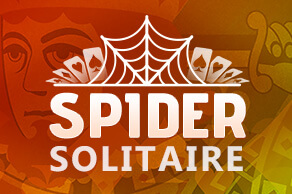
The post-attack edition of French satirical magazine Charlie Hebdo from last year. (Yoan Valat/European Pressphoto Agency)
Charlie Hebdo is back in the headlines — this time for a headline of its own.
Last week, the satirical publication — whose offices were attacked by two jihadist gunmen in January 2015 — published an editorial, in English and in French, titled “How Did We End Up Here?”
In the aftermath of more attacks in Paris in November and in Brussels on March 22, the editorial continues the magazine’s provocative criticism of Islam as an affront to the vaunted French ideal of secularism.
“For a week now, experts of all kinds have been trying to understand the reasons for the attacks in Brussels,” the piece begins. “An incompetent police force? Unbridled multiculturalism? Youth unemployment? Uninhibited Islamism?” For the piece’s principal author — the cartoonist Laurent Sourisseau, known as “Riss” — all of these commonly cited reasons are entirely beside the point. “The first task of the guilty,” he writes later on, “is to blame the innocent.”
For Riss, the problem is fundamentally individual; there is hardly anything structural about it. To that end, his piece focuses on four specific individuals — one real Muslim and three imagined ones.
The real one is Tariq Ramadan, who teaches contemporary Islamic studies at Oxford and who arrived in France to deliver a lecture at Sciences Po’s Saint-Germain-en-Laye campus last week. “Tariq Ramadan,” the editorial concedes, “is never going to grab a Kalashnikov with which to shoot journalists at an editorial meeting. Nor will he ever cook up a bomb to be used in an airport concourse. […] It will not be his role.”
The “role” he does have, however, is to “dissuade people from criticizing his religion in any way.”
As the piece continues: “The political science students who listened to him last week will, once they have become journalists or local officials, not even dare to write nor say anything negative about Islam. The little dent in their secularism made that day will bear fruit in a fear of criticizing lest they appear Islamophobic.”
The same is true of the next two characters in the piece, an imaginary Muslim “veiled woman” and an imaginary Muslim baker. They, too, have roles: making people uncomfortable on the street and quietly preventing them from buying the pork-laden croque monsieurs and baguettes au jambon that are apparently a national birthright. “We’ll get used to it easily enough,” the piece mocks. “As Tariq Ramadan helpfully instructs us, we’ll adapt.”
The third imaginary Muslim, however, is a “young delinquent” who heads to Brussels airport in a taxi with several of his friends. And there is the crux of the editorial, the narrative line that connects Ramadan, the veiled woman, the baker and, finally, the jihadist: “None of what is about to happen in the airport or metro of Brussels can really happen without everyone’s contribution.”
In the end, the piece concludes that what the young men attack is not necessarily innocent people flying home or going to work on the subway. What they attack is an abstraction — “the very notion of the secular.” Islam, this argument maintains, is anti-French, anti-modern and anti-intellectual. It silences discourse, discussion and, most of all, debate.
France today is home to Europe’s largest Muslim population, and the Charlie Hebdo editorial is perhaps the most recent expression of a collective paranoia that has gained significant traction in recent years.
This is a paranoia over the prospect of an “Islamic France,” an anxiety that was the essence of Michel Houellebecq’s best-selling 2015 novel, "Soumission," and that remains a frequent admonition of, among others, the philosopher Alain Finkielkraut, who insists that an accusation of Islamophobia is the most dangerous strain of an ideology he calls “anti-racism." Anti-racism, for Finkielkraut, “will be to the 21st century what communism was to the 20th.”
The paranoia appeared again this week, when Air France announced it would require female employees to wear headscarves on a renewed service between Paris and Tehran. A leading union accused the airline of launching “an attack on women.”
As is often the case with everything Charlie Hebdo publishes, the piece has ignited an intense debate, both inside and outside of France. For a certain segment of the French intellectual establishment, the most ironic element in a piece by the most ironic of magazines is precisely the question of silence it poses. But who, exactly, is being silenced: the imaginary French cafe-goers in the piece, denied their croque monsieurs? Or Tariq Ramadan himself?
“There is a kind of demonization of my presence in France which is crossing the board, and this is used as the personification of ‘what we don’t want,’” said Ramadan, in an interview. “I’m the personification of this Islam that is perceived as a threat.”
In the first three months of 2016, Ramadan — often accused of a “double speak” between his public appearances in Europe and the Islamic world — has been prohibited from speaking in Béziers, Argenteuil, Orléans, Bordeaux and even at Paris’s Arab World Institute. “All these people who are apparently ‘Je Suis Charlie,’” Ramadan said, “are also apparently fine with preventing me from speaking.”
In the wake of the editorial, four prominent French intellectuals addressed this controversy in a Sunday opinion piece for Le Monde. “In a country where millions of people took to the streets in defense of freedom of expression,” they wrote, “one can thus prohibit the speech of Tariq Ramadan, the man we love to hate, without any legal justification.”
For Ramadan, there is a distinctly French phenomenon. “How is it,” he said, “that it’s the only country in the world where I cannot lecture in a university?”
Read more:
Charlie Hebdo editor says the paper is done with prophet Muhammad cartoons
Guns, blood and religion: How Charlie Hebdo’s new cover marks massacre’s anniversary








